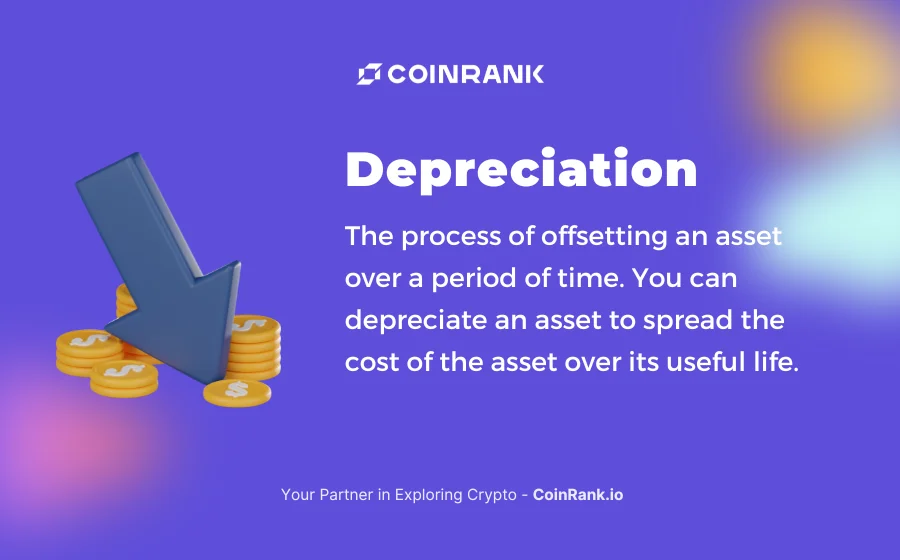
KEYTAKEAWAYS
Discover Depreciation, a critical accounting practice that systematically allocates an asset's cost over its useful life, impacting financial reporting and tax considerations.

CONTENT
DEFINITION
Depreciation serves as an essential accounting and financial practice involving the systematic allocation of an asset’s cost over its useful life. This process recognizes that assets lose value as they are utilized and age, reflecting the wear and tear incurred during their operational lifespan. Depreciation allows businesses and entities to match the expense of an asset with the revenue it generates, aiding in the accurate assessment of profitability.
Depreciation methods, such as straight-line, declining balance, or units of production, determine how the cost of an asset is distributed over time. The choice of method depends on the asset’s characteristics and accounting standards. Depreciation is not limited to tangible assets; it also applies to intangible assets like patents and copyrights.
Understanding depreciation is crucial for proper financial reporting, taxation, and decision-making, as it affects an entity’s financial statements and tax liability.
More From CoinRank
- CoinRank Finance Dictionary : Discount
- CoinRank Finance Dictionary : Disbursements
- CoinRank Finance Dictionary : Debt Finance

















